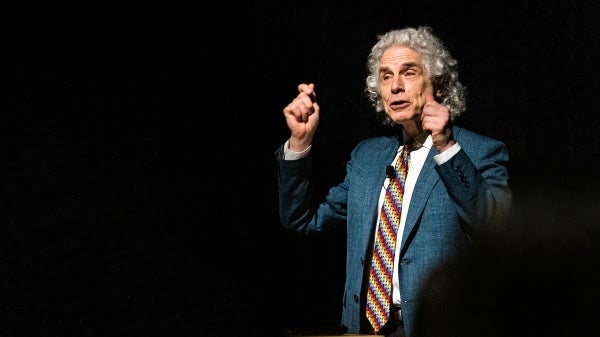To meet the world of big data and ask big questions, Arizona State University just added a powerful new research computing capability.
The service will be accessible from any computer. Faculty will be entitled to 25,000 free computing hours monthly per researcher, with additional hours available for a fee. The service is open to all researchers, including staff and students. If postdoctoral researchers are sponsored by a faculty member, they are entitled to 25,000 subsidized hours as well.
Sunil Wahal, Jack D. Furst Professor of Finance in the W. P. Carey School of Business, explained how the new computing power will help his research in stock trades.
“Much of the research I do involves studying quotes and trades in U.S. financial markets over the past 15–16 years or so,” Wahal said. “That is an enormous amount of data. It’s in the hundreds of terabytes. It involves billions of trades, billions of quotes, and the volume is so much that it’s impossible to process on a standalone machine. It absolutely needs some sort of high-performance computing system to work with.”
Josh LaBaer, executive director of the Biodesign Institute, said the new computing power will help advance the mission of addressing critical global challenges in healthcare, sustainability and security.
“We’re very excited about ASU’s additional computing power because by adding a lot of parallel processing, by adding more memory, and by building more powerful tools, we will be able to ask bigger questions,” LaBaer said. “We can do small levels of computing already, or even moderate levels on the current system, but really big challenges are going to require more power. We’re very excited to add all that computational power so that we can build bigger models and we can take on bigger projects.”
ASU Research Computing offers a portfolio of services to help support research. These range from computational resources to software and application development as well as workshops and training.
ASU has a support staff consisting of computational scientists, programmers, and database administrators with expertise in all areas of computing, including scientific and parallel computing, big data analytics (in memory), custom software development, database engineering, and scientific visualization.
For more details on technical capabilities, visit: https://cores.research.asu.edu/research-computing/capabilities.
Office hours for Research Computing are every Tuesday from 1 to 4 p.m. in the Goldwater Center for Science and Engineering, room 546.
More Science and technology

ASU secures NSF grant to advance data science literacy as demand soars
In an era where data permeates every facet of our lives, the importance of data literacy cannot be overstated. Recognizing this critical need, Jennifer Broatch, a professor at Arizona State…

Popular science author Steven Pinker explores rationale behind irrational thinking at ASU event
Popular science author Steven Pinker returned to Arizona State University’s Tempe campus on Feb. 7 for a rational talk about irrational thinking.More than 200 people filled Marston Exploration…

Professor's expertise in DNA nanotechnology leads to top faculty honor
Arizona State University Professor Hao Yan works at the cutting edge of DNA nanotechnology, designing molecular building blocks to create complex systems.“I consider myself a biomolecular designer, a…
